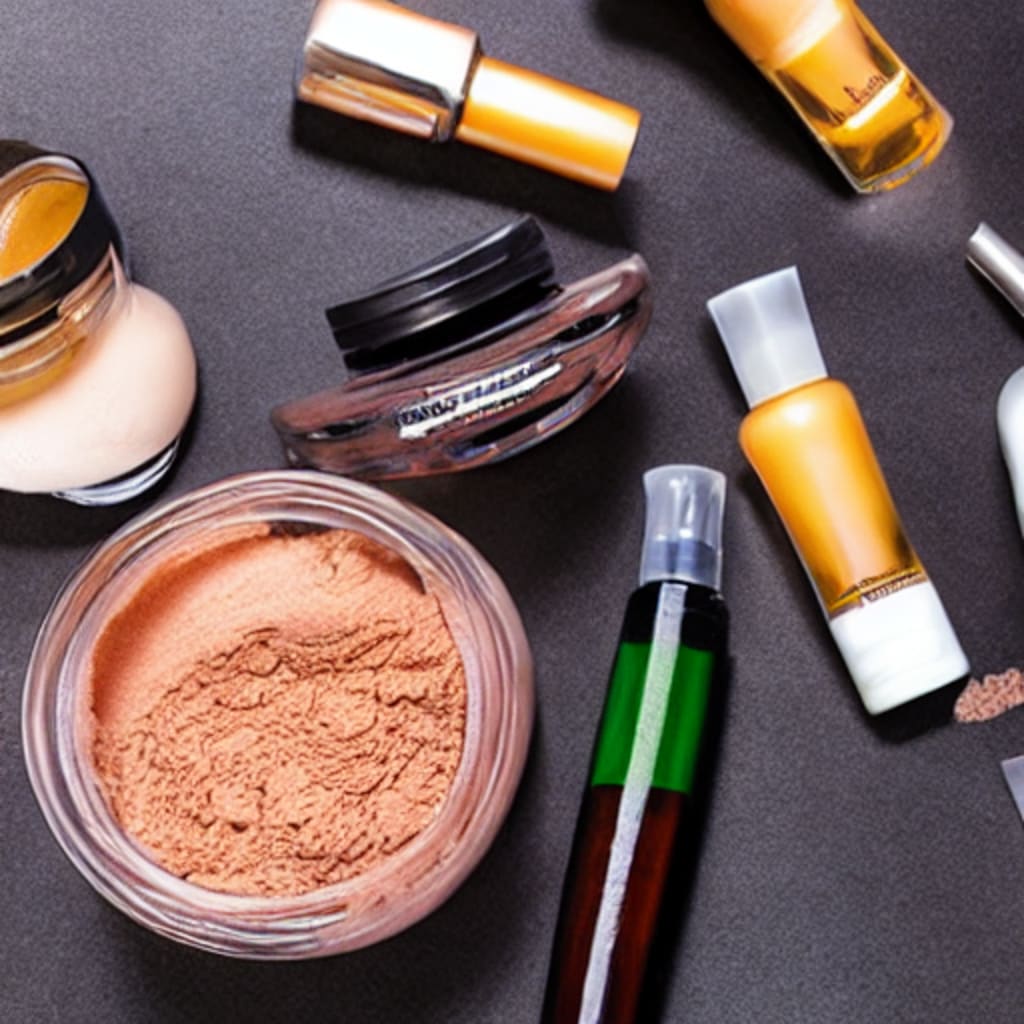15 Skin Care Tips for Healthy, Radiant Skin
A Comprehensive Guide to Achieving Your Best Skin Yet

Taking care of your skin is crucial for maintaining a healthy, youthful, and radiant complexion. While many people think that skincare is only for those who have specific skin concerns, such as acne or wrinkles, everyone can benefit from a regular skincare routine. In this article, we will provide you with 2500 words worth of skincare advice and tips that will help you achieve your best skin yet.
Know Your Skin Type
The first step in creating a successful skincare routine is to understand your skin type. Your skin type will determine what products and ingredients will work best for you. There are four basic skin types: normal, oily, dry, and combination.
Normal skin: If you have normal skin, you have a balanced complexion with no major concerns. Your skin is neither too oily nor too dry.
Oily skin: If you have oily skin, you may have an overproduction of sebum, which can result in a shiny complexion, enlarged pores, and acne breakouts.
Dry skin: If you have dry skin, your skin may feel tight, itchy, or rough. You may experience flakiness or fine lines and wrinkles.
Combination skin: If you have combination skin, you have a mixture of oily and dry areas on your face. Your T-zone (forehead, nose, and chin) may be oily, while your cheeks and other areas may be dry.
Once you determine your skin type, you can select products that will work best for you.
Stay Hydrated
One of the most important things you can do for your skin is to stay hydrated. Drinking water helps to flush out toxins and impurities from your body, which can lead to clearer, more radiant skin. Aim to drink at least eight glasses of water a day, and more if you are exercising or spending time in the sun.
Use Sunscreen Daily
One of the most damaging things you can do to your skin is to expose it to the sun without protection. Sun damage can lead to premature aging, dark spots, and even skin cancer. To protect your skin, use a broad-spectrum sunscreen with an SPF of at least 30 every day, even on cloudy days. Apply sunscreen 15-30 minutes before going outside and reapply every two hours or after swimming or sweating.
Cleanse Your Skin
Cleansing is an essential part of any skincare routine. It helps to remove dirt, oil, and makeup from your skin, which can clog pores and lead to breakouts. Choose a gentle, pH-balanced cleanser that is appropriate for your skin type. If you have oily skin, look for a foaming cleanser that can help to remove excess oil. If you have dry skin, choose a creamy or oil-based cleanser that will not strip your skin of its natural oils.
Exfoliate Regularly
Exfoliating helps to remove dead skin cells from the surface of your skin, which can lead to a brighter, smoother complexion. However, it is essential to exfoliate gently and not too often, as over-exfoliation can damage your skin. If you have oily or combination skin, you may be able to exfoliate once or twice a week. If you have dry or sensitive skin, limit exfoliation to once a week or less. Look for products with gentle exfoliants, such as sugar, salt, or jojoba beads.
Moisturize Your Skin
Moisturizing is an essential step in any skincare routine, as it helps to keep your skin hydrated and nourished. Choose a moisturizer that is appropriate for your skin type. If you have oily skin, look for a lightweight, oil-free moisturizer that will not clog your pores. If you have dry
skin, choose a heavier, cream-based moisturizer that will provide more hydration. Combination skin may benefit from using two different moisturizers, on for the dry areas and one for the oily areas.
Add Antioxidants to Your Routine
Antioxidants can help to protect your skin from free radical damage, which can lead to premature aging and other skin concerns. Look for products that contain antioxidants such as vitamin C, vitamin E, or green tea extract. These ingredients can also help to brighten your complexion and even out your skin tone.
Use Retinoids
Retinoids are a type of vitamin A that can help to improve the appearance of fine lines, wrinkles, and other signs of aging. They work by increasing cell turnover and stimulating collagen production in the skin. However, retinoids can be irritating to some people, especially those with sensitive skin. Start with a low concentration and use only a few times a week to see how your skin reacts.
Be Gentle with Your Skin
While it may be tempting to scrub your skin aggressively to remove impurities, being too rough with your skin can actually cause more harm than good. Use gentle pressure when cleansing and exfoliating your skin, and avoid using hot water, which can strip your skin of its natural oils.
Get Enough Sleep
Sleep is essential for overall health and well-being, including the health of your skin. Lack of sleep can lead to dark circles, puffy eyes, and a dull complexion. Aim to get 7-8 hours of sleep each night to allow your skin to repair and regenerate.
Don't Smoke
Smoking can have a detrimental effect on your skin, leading to premature aging, wrinkles, and a dull complexion. Quitting smoking can help to improve the appearance of your skin and your overall health.
Eat a Healthy Diet
Eating a healthy diet rich in fruits, vegetables, and lean proteins can help to nourish your skin from the inside out. Certain nutrients, such as vitamins A, C, and E, zinc, and omega-3 fatty acids, can help to improve the appearance of your skin and protect it from damage.
Manage Stress
Stress can have a negative impact on your skin, leading to acne breakouts, wrinkles, and other skin concerns. Practice stress management techniques such as deep breathing, meditation, or yoga to help reduce stress and improve your skin's appearance.
Avoid Harsh Ingredients
Avoid using skincare products that contain harsh ingredients such as sulfates, parabens, and synthetic fragrances. These ingredients can be irritating to the skin and may even cause allergic reactions in some people. Look for products that are free of these ingredients and contain natural, nourishing ingredients instead.
Consult with a Dermatologist
If you have specific skin concerns or are unsure about what products to use, consider consulting with a dermatologist. They can provide personalized recommendations and treatments that will help to address your specific skin concerns.
In conclusion, taking care of your skin requires a combination of healthy habits and a regular skincare routine. By understanding your skin type, staying hydrated, using sunscreen, cleansing, exfoliating, moisturizing, and adding antioxidants and retinoids to your routine, you can achieve your best skin yet. Additionally, practicing healthy habits such as getting enough sleep, eating a healthy diet, managing stress, and avoiding harsh ingredients can help to support the health and appearance of your skin. Remember to be gentle with your skin and seek the advice of a dermatologist if you have specific concerns or questions.
About the Creator
YABI
I love to publish posts
l like content Writting
Enjoyed the story? Support the Creator.
Subscribe for free to receive all their stories in your feed. You could also pledge your support or give them a one-off tip, letting them know you appreciate their work.






Comments
There are no comments for this story
Be the first to respond and start the conversation.